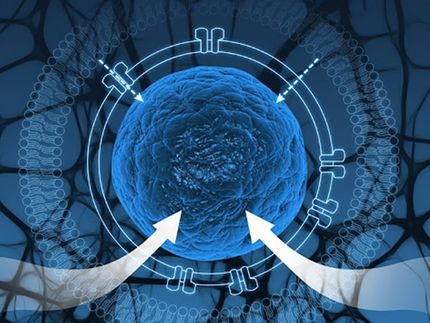Promega and BASF develop alternative method on identifying allergenic substances
REACH requires tests for skin sensitizing action
Promega and BASF have jointly developed an alternative method to animal studies that can reliably detect the allergenic potential of substances. Using a newly developed cell line, the reaction of skin cells to allergenic substances can now be demonstrated in the test tube.
Allergic skin reactions involve a variety of biochemical processes. These include the binding of a substance to one of the skin’s proteins and a resulting stress reaction. Both are early and reliable indicators of a possible allergenic potential of the test substance. In the newly developed cell line, scientists of RWTH Aachen University Hospital have modified a reporter gene from Promega, so that the stress reactions are coupled to a light signal. This gene construct was then stably inserted into human skin cell lines. Dr. Katarina Bohm, Marketing Manager of Promega: “Our luciferase vectors translate cellular changes into a luminescent signal. This allows stress reactions in skin cells to be easily detected with our luciferase assay systems.” The new cell line has been extensively tested at BASF and a standardized method has been developed to reliably assess the allergenic potential of a substance.
Previously, the skin sensitizing action of substances had to be determined in animal studies. “Combining the new method with two additional alternative methods to investigate skin sensitization allows us not only to significantly reduce the number of animal studies, but also to predict a possible allergic potential more reliably than before,” said Dr. Robert Landsiedel, Head of the short-term Toxicology unit at BASF. Developing the method at the present time is particularly important because following the REACH regulation, several thousand substances have to be tested for their skin sensitizing action by 2018. Furthermore, since March 2013 animal studies on cosmetic ingredients for the European market have been completely prohibited.
Topics
Organizations
Other news from the department business & finance

Get the chemical industry in your inbox
By submitting this form you agree that LUMITOS AG will send you the newsletter(s) selected above by email. Your data will not be passed on to third parties. Your data will be stored and processed in accordance with our data protection regulations. LUMITOS may contact you by email for the purpose of advertising or market and opinion surveys. You can revoke your consent at any time without giving reasons to LUMITOS AG, Ernst-Augustin-Str. 2, 12489 Berlin, Germany or by e-mail at revoke@lumitos.com with effect for the future. In addition, each email contains a link to unsubscribe from the corresponding newsletter.

























































